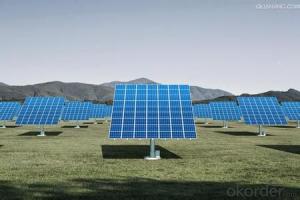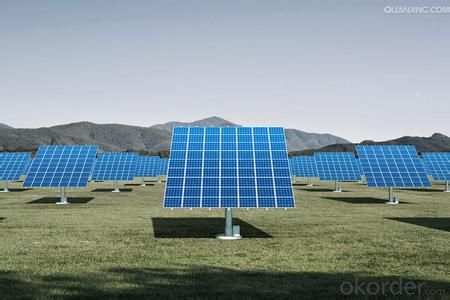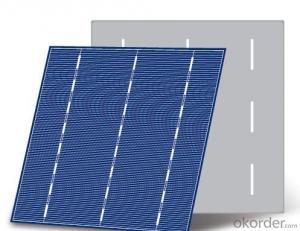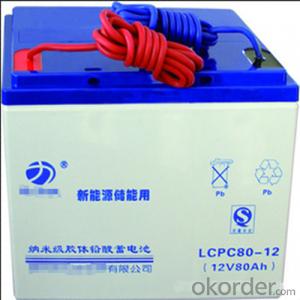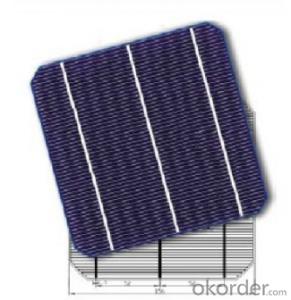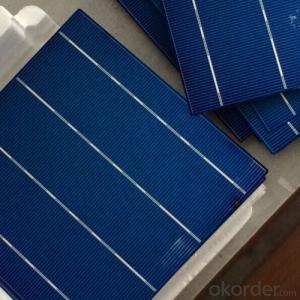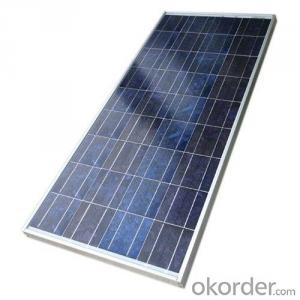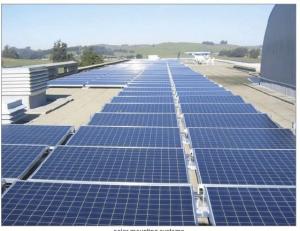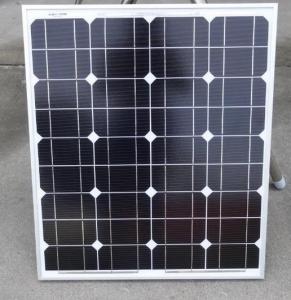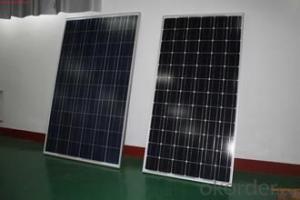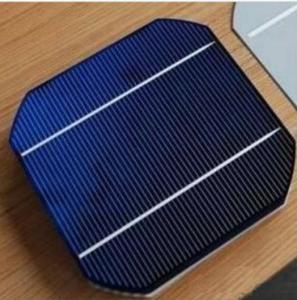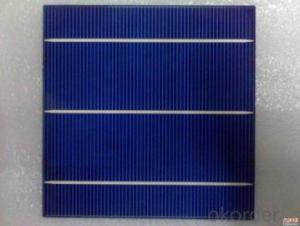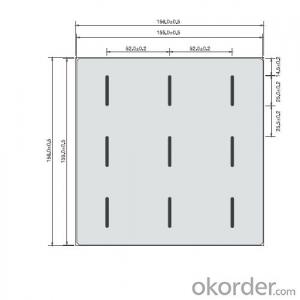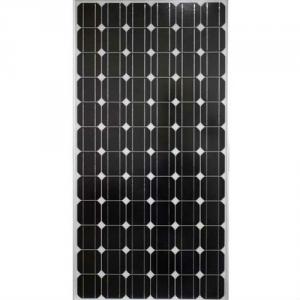Stacked Monocrystalline Silicon Solar Cells
- Loading Port:
- China Main Port
- Payment Terms:
- TT OR LC
- Min Order Qty:
- -
- Supply Capability:
- -
OKorder Service Pledge
OKorder Financial Service
You Might Also Like
Quick Details
| Model Number: | |||||
| Material: | Size: | Number of Cells: | |||
| Max. Power: |
Packaging & Delivery
| Packaging Detail: | carton and pallet |
| Delivery Detail: | 30days |
Specifications
1. monocrystalline silicon solar cells,monocrystalline silicon solar module,pv cell modules
2. Power rang :320 to 480wp
monocrystalline silicon solar cells,monocrystalline silicon solar module,monocrystalline silicon pv cell modules
1. Power rang :5wp to 280 wp per panel;
2. mono crystalline or poly crystalline;
3. certitication: CE , IEC , TUV, certificate, and so on.
4. With advanced materials and equipments, our modules are designed and manufactured in consistency with the IEC 61215:1993 standards which can guarantee excellent electrical performance and the product life span of 25 years.
5. A film of PECVD is coated on the upper surface as antireflection measure which the characteristic of deep blue color.
6. The modules are embedded with a sheet of imported strong transparent glass, two sheets of long endurance EVA, a high efficiency mono-crystalline cells sheet and a sheet of antihumidity TPT for different weather conditions.
7. High quality anodized aluminum frame which is the choice for strong wind resistance and mountain terrain.
8. A multifunction box can safeguard safe connection.
9. The exterior design and electrical performance of each every module are fully tasted to guarantee superior quality.
Model | Solar Module | Inverter | Charge Controller | Storage Battery | Daily Generated Energy(Wh) | |||
| Quantity (pc) | Specr. (wp) | Power (W) | DC/AC | Voltage/Current | Quantity (pc) | Cap./pc | ||
| PV320 | 4 | 80 | 1000 | 12Vdc/220Vac | 57.6V/10A | 4 | 12V/80Ah | 1360 |
| PV400 | 4 | 100 | 1000 | 12Vdc/220Vac | 57.6V/10A | 4 | 12V/100Ah | 1700 |
| PV480 | 4 | 120 | 1000 | 12Vdc/220Vac | 57.6V/10A | 4 | 12V/120Ah | 2040 |
when storage battery is fully charged,and all possible loads are in use. | ||||||||
- Q: How do people price solar cells? Is it based on a specific way of calculating the cost of solar cells?
- The pricing of solar cells is based on it's material used to made it, the cost of building it and maintaining it. In fact, it doesn't cost much ever after every installation of solar cells system is done.
- Q: What is the impact of extreme temperature fluctuations on solar cell efficiency?
- Extreme temperature fluctuations can have a significant negative impact on solar cell efficiency. High temperatures can cause the cells to overheat, leading to a decrease in their performance and efficiency. On the other hand, very low temperatures can also reduce their efficiency as the cells become less effective at converting sunlight into electricity. Therefore, it is crucial to consider temperature management in solar installations to optimize their efficiency and overall performance.
- Q: Can solar cells be used in powering communication networks?
- Yes, solar cells can be used to power communication networks. Solar cells convert sunlight into electricity, which can then be used to power various devices and systems, including communication networks. This makes solar energy an environmentally friendly and sustainable option for powering these networks, especially in remote or off-grid locations where access to traditional power sources may be limited.
- Q: What is the role of anti-islanding devices in solar cell systems?
- The role of anti-islanding devices in solar cell systems is to ensure the safety of utility workers and prevent damage to the grid in the event of a power outage. These devices are designed to detect when the grid loses power and immediately disconnect the solar system from the grid. This prevents the solar system from continuing to generate electricity and feeding it back into the grid, which could pose a danger to workers trying to fix the power outage. Anti-islanding devices also help to protect the solar system itself from potential damage caused by voltage fluctuations during an outage.
- Q: What is the lifespan of solar cell batteries?
- The lifespan of solar cell batteries can vary depending on various factors such as the quality of the battery, usage patterns, and maintenance. On average, solar cell batteries can last anywhere from 5 to 15 years. However, with proper care and regular maintenance, some batteries have been known to last for up to 20 years or more. It is important to consider the manufacturer's specifications and recommendations when determining the lifespan of a specific solar cell battery.
- Q: Can solar cells be used in vehicles?
- Yes, solar cells can be used in vehicles. Solar cells can be integrated into vehicles to generate electricity from the sun's energy, which can be used to power various components of the vehicle such as the battery, air conditioning, or even the entire propulsion system. This helps reduce reliance on fossil fuels and decreases greenhouse gas emissions, making solar-powered vehicles an environmentally friendly alternative.
- Q: Can solar cells be used in aviation or aerospace applications?
- Yes, solar cells can be used in aviation or aerospace applications. They are commonly used to power satellites, space probes, and unmanned aerial vehicles (UAVs) due to their ability to convert sunlight into electricity. Solar cells can provide a reliable and sustainable source of power in remote and high-altitude environments.
- Q: How do solar cells perform in areas with extreme temperature fluctuations?
- Solar cells generally perform well in areas with extreme temperature fluctuations. While high temperatures can slightly reduce their efficiency, modern solar cell designs are often equipped with cooling mechanisms to mitigate this issue. Additionally, solar cells are tested and designed to withstand temperature variations, including freezing temperatures. Overall, solar cells are designed to be robust and reliable in varying climates, allowing them to generate electricity efficiently even in areas with extreme temperature fluctuations.
- Q: Can solar cells be used underwater?
- No, solar cells cannot be used underwater as they rely on sunlight to generate electricity. Water blocks sunlight and prevents the solar cells from functioning effectively.
- Q: Are there any library or exhibition halls where I can show students at school how the solar cells works?
- Well, it is hard to say when there would be one talking about solar cells.
Send your message to us
Stacked Monocrystalline Silicon Solar Cells
- Loading Port:
- China Main Port
- Payment Terms:
- TT OR LC
- Min Order Qty:
- -
- Supply Capability:
- -
OKorder Service Pledge
OKorder Financial Service
Similar products
Hot products
Hot Searches
Related keywords
